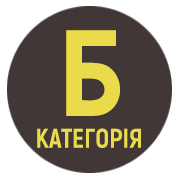LEXICAL BORROWINGS IN THE SPANISH LANGUAGE (BASED ON THE MATERIAL OF THE FRENCH, ITALIAN AND PORTUGUESE LANGUAGES)
DOI:
https://doi.org/10.32782/folium/2024.4.11Keywords:
borrowings, foreign words, language contacts, language recipient, adaptation, assimilationAbstract
The article is devoted to the study of the peculiarities of the processes of borrowing and their changes, assimilation in the Spanish language on the material of three Romance languages, namely French, Portuguese and Italian. Historical connections, events and rich cultural exchange greatly influenced linguistic interaction through commerce, migration, literary and artistic influences, leading to the borrowing of words. We also studied the views of well-known linguists on the concepts of borrowing and foreign words, types of classifications of borrowed words. It should be mentioned that the Royal Academy of the Spanish Language remains the classic for the settlement of various issues related to the Spanish language. The official Dictionary of the Royal Academy of the Spanish Language (DRAE) was created here, which, in fact, became the material for searching and describing loanword changes, their characteristics and classification. It was found that the main reason for borrowing, adapting and assimilating new lexical elements is the lack of a term to denote a certain phenomenon or concept in the native language or borrowed words give a new shade or emotional coloring to a lexical unit already existing in the Spanish language. Thus, in the process of borrowing, words are added to the lexical fund, in our case, of the Spanish language, having passed certain stages of adaptation at the phonetic and orthographic level. There is a division that consists in preserving the original spelling and pronunciation or adapting the original pronunciation or spelling. Of course, the lexical composition of the Spanish language is saturated with foreign words, the use of which is widespread or deeply rooted. Therefore, the main focus of the article is on language interference. The historical, geographical and cross-cultural ties of Spain with France, Portugal and Italy became the source of the spread of new concepts, demonstrated the stability and at the same time the flexibility of the Spanish language system, enriched the Spanish language with various words and brought new meanings.
References
Есенова Е.Й., Калинич І.Й., Бойтор В.Ю. Лексичне запозичення як засіб збагачення словникового складу мови. Закарпатські філологічні студії. Видавничий дім «Гельветика», 2023. Вип. 28. Том 1. С. 151-156. URL: https://dspace.uzhnu.edu.ua/jspui/handle/lib/52930
Жлуктенко Ю.А. Мовні контакти. Проблеми інтерлінгвістики. Київ : Видавництво Київського університету, 1966. 135 с.
Карпенко Ю.А. Вступ до мовознавства : підручник. Київ : Академія, 2006. 336 с.
Кочерган Н.П. Вступ до мовознавства : підручник. Київ : Академія, 2001. 368 с.
Babel A. M. Affective motivations for borrowing : Performing local identity through loan phonology. Language and Communication. Volume 49, 2016. 70-83 p. URL: https://scholar.google.com/citations?view_op=view_citation&hl=en&user=4gAcrcEAAAAJ&citation_for_view=4gAcrcEAAAAJ:_FxGoFyzp5QC
Baldoceda Espinoza A. Italianismos en la vigésima segunda edición del DRAE. Boletín de la academia peruana de la lengua. 2014. 111-127 p. URL: https://doi.org/10.46744/bapl.201402.005
Diccionario de la lengua española | Edición del Tricentenario. «Diccionario de la lengua española» – Edición del Tricentenario. URL: https://dle.rae.es
Hernández Hernández H. Los extranjerismos en la enseñanza del español como lengua extranjera: aspectos ortológicos, ortográficos y léxicosemánticos. ASELE. Actas XVI. 2005. URL: https://cvc.cervantes.es/ensenanza/biblioteca_ele/asele/pdf/16/16_0372.pdf
Lázaro Carreter F. El dardo en la palabra. Barcelona : Galaxia Gutenberg/ Círculo de Lectores.1997. p. 757.
Mouriz S. H. Préstamos Linguísticos en la Lengua Española Actual: italianismos, latinismos, arabismos, anglicismos y galicismos. International Journal of Language and Linguistics. 2015. p. 41-53. URL: https://ijllnet.com/journals/Vol_2_No_1_March_2015/5.pdf
Real Academia Española: sitio web oficial. URL: https://www.rae.es
Seibane S. G., Paraíso M.S., Azucena P. Traspasando lo linguístico: factores esenciales en el contacto de lenguas. Madrid-Frankfurt am Main : Iberoamericana Editorial Vervuert, 46. Lengua y Sociedad. 2021. 210 p.











